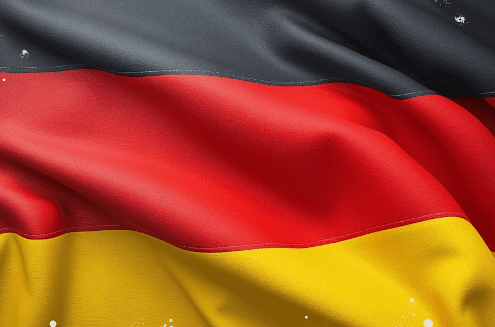November 12, 2024 – Germany is heading for an early federal election on February 23, 2025, following the collapse of its “traffic light” coalition government. The coalition, composed of the Social Democrats (SPD), the Greens, and the Free Democrats (FDP), has faced growing internal tensions over economic policies, immigration, and energy reform. After months of struggle to maintain unity, SPD Chancellor Olaf Scholz officially requested the dissolution of the Bundestag, setting the stage for new elections early next year. This political shake-up comes at a critical time for Germany as it navigates economic pressures, shifting demographics, and a complex international landscape.
Background of the Crisis
The “traffic light” coalition, formed in 2021, was the first of its kind, bringing together parties with widely differing views. Despite initial hopes that it could bridge Germany’s ideological divides, tensions have mounted over pressing issues like immigration, the green energy transition, and public spending. The final break reportedly came after heated debates over energy subsidies and immigration reforms, which left the coalition fractured.
Chancellor Scholz, who has faced calls from both opposition parties and members of his own SPD to step down, stated that the decision to call for elections was “necessary for stability.” “The German people deserve a government that is united and focused on the future,” Scholz declared, expressing regret over the coalition’s inability to reach consensus on key policy areas.
Key Issues Leading to the Breakup
Several contentious issues contributed to the coalition’s collapse:
- Energy Subsidies and Climate Policy: As energy prices soared, the Greens pushed for more aggressive climate policies and an acceleration in Germany’s transition to renewable energy. The FDP, however, resisted extensive subsidies for green initiatives, citing concerns over fiscal responsibility and potential tax hikes. The resulting standoff brought legislative processes to a halt.
- Immigration Policy: The rise in asylum applications and migration into Germany has intensified debates on immigration. The SPD and the Greens advocated for more supportive measures for migrants, while the FDP pushed for stricter immigration controls. This disagreement became particularly pronounced following recent immigration-related protests and growing public anxiety over integration.
- Economic Reform and Fiscal Responsibility: The FDP, traditionally a pro-business party, opposed SPD-led plans to increase social spending, arguing it would burden the economy. The Greens and the SPD sought funding for welfare programs, but this stance clashed with the FDP’s fiscal conservatism, creating a legislative impasse.
Public Reaction and Polling Trends
The announcement of early elections has sparked a nationwide conversation on the future direction of German politics. Recent opinion polls show fluctuating support for the major parties:
- SPD: Chancellor Scholz’s SPD currently sits at around 20% in polls, a drop from its standing in the last election. While Scholz’s focus on stability resonates with some voters, criticism over his leadership within the coalition has eroded support.
- CDU/CSU: The center-right Christian Democratic Union (CDU) and its Bavarian sister party, the Christian Social Union (CSU), lead the polls with 27%. The bloc has capitalized on the coalition’s struggles by promising stability and fiscal prudence.
- Greens: With around 15% in the polls, the Greens have retained support, especially among young voters. However, their uncompromising stance on green policies within the coalition has polarized opinion.
- FDP: The Free Democrats face a decline in support, polling at just 7%, as they have been criticized for obstructing some coalition goals.
Political analysts predict that the CDU/CSU may form a new coalition government if current trends hold, though it remains unclear whether they will secure a majority.
Implications for Germany and Europe
The upcoming election is expected to have significant implications both domestically and internationally. As Europe’s largest economy, Germany’s political stability and policy decisions have a far-reaching impact on the EU. Key areas of focus will include:
- EU Relations and Leadership: Germany’s leadership within the EU is critical, and the next government’s stance on EU policies, particularly on fiscal rules and defense, will shape Europe’s future.
- Economic Policy: With recession fears and inflation concerns, the next German government will face pressure to balance fiscal responsibility with the need for economic growth. Economic policies could also influence the euro and broader EU economic stability.
- Climate Policy and Energy Independence: The coalition’s collapse highlights the complexities of balancing green policies with economic needs. Germany’s next government will likely need to address these challenges more strategically, balancing environmental targets with energy security.
Potential Outcomes and New Coalitions
As parties begin to prepare for the upcoming election, potential coalition scenarios are emerging:
- CDU/CSU-Green Coalition: This combination would likely emphasize economic growth while maintaining moderate environmental goals.
- SPD-Green-Left Coalition: Should the SPD recover in the polls, a coalition with the Greens and the Left could pursue progressive social policies, though this would be a more left-leaning government than seen in recent years.
- New Traffic Light Coalition: Some analysts believe the SPD, Greens, and FDP could revive their coalition under new terms if no party wins a clear majority, though this scenario remains uncertain.
Chancellor Scholz’s Legacy
Chancellor Scholz’s legacy is now in question. He will likely be remembered for his efforts to balance progressive and conservative views within a challenging coalition, though ultimately he could not prevent its collapse. His term, marked by pragmatic attempts to steer Germany through difficult times, will be viewed through the lens of both his achievements and the limitations of the coalition model he led.
Moving Forward
The February election will provide Germany with an opportunity to reset. For many Germans, the vote represents a choice about their nation’s priorities: climate action versus economic conservatism, immigration policies, and Germany’s role on the global stage. As campaigning begins, each party will work to persuade voters that they can provide the stability, innovation, and leadership that Germany needs in the years to come.





